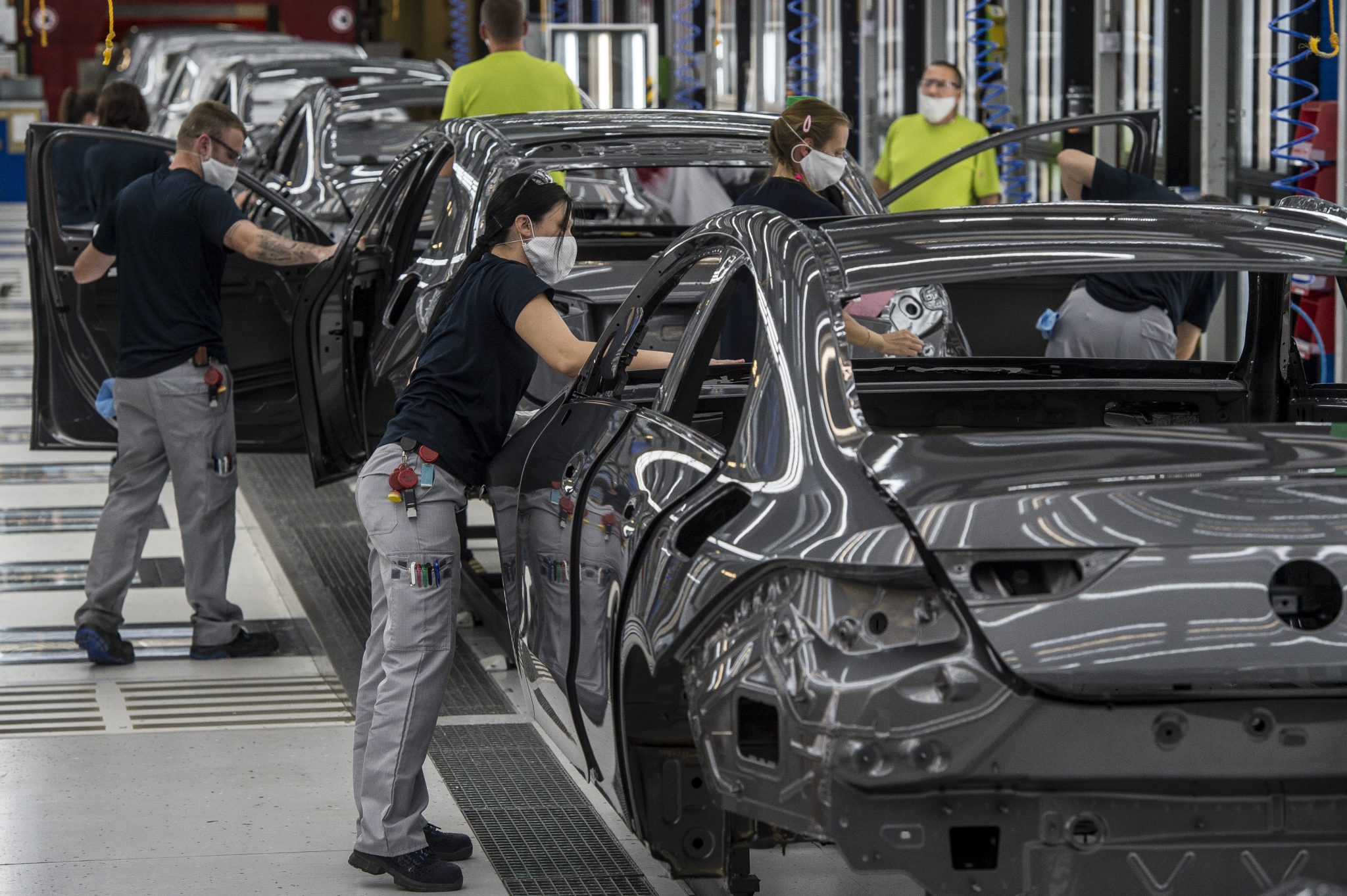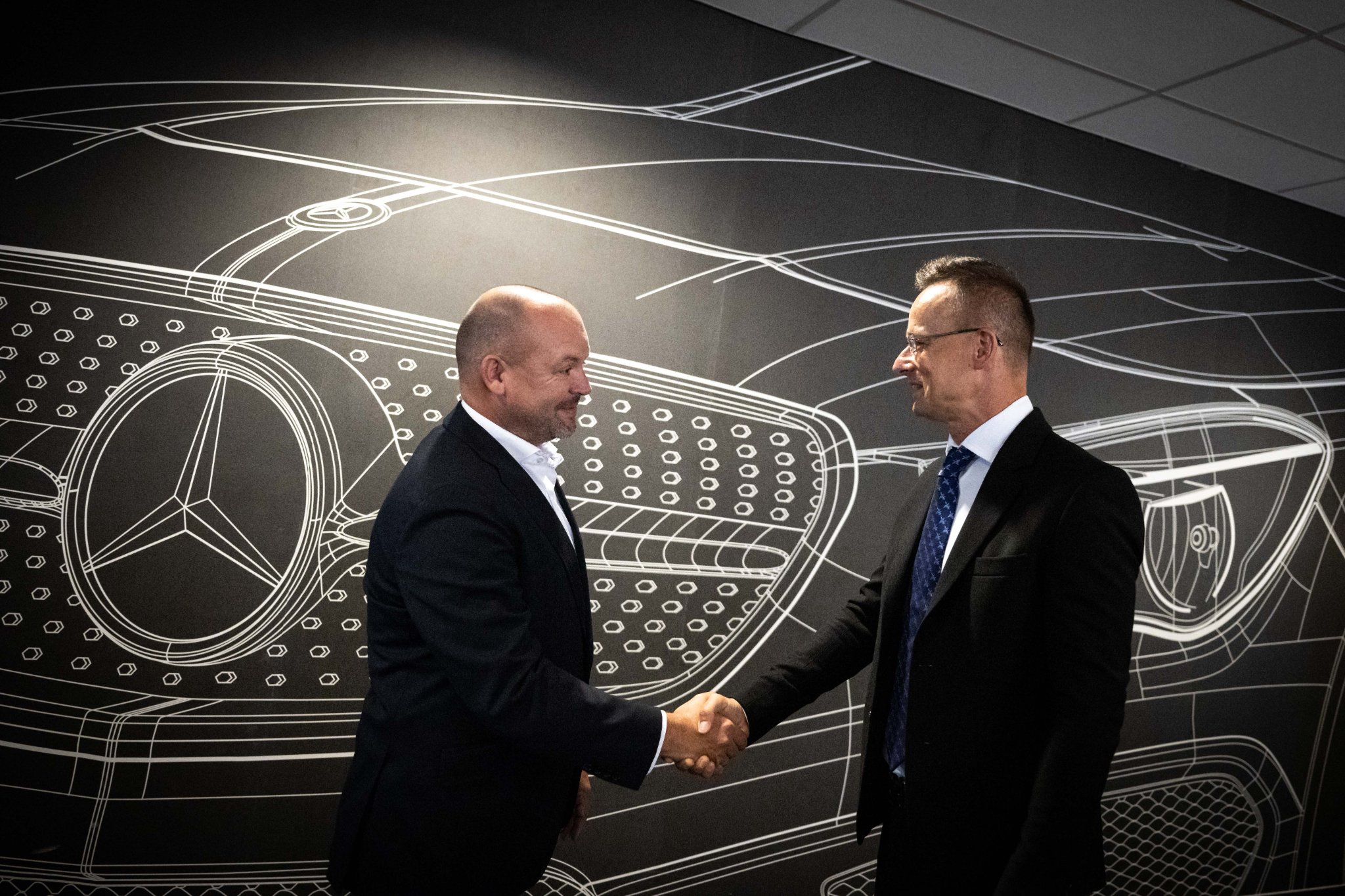
Even though none of the companies are making the vaccination compulsory for their employees, they emphasize that the health benefits of the jabs significantly outweigh the risks.Continue reading

Mercedes will expand its assembly and bodywork plant in Hungary with new production lines worth HUF 400 billion (EUR 998 million) in one of the largest investments announced so far this year, Minister of Foreign Affairs and Trade Péter Szijjártó said in Kecskemét on Thursday.
According to the minister, the development will enable the plant to produce two new electric platforms, bringing higher-end models with technological added value to Hungary.
The project will involve significant infrastructure improvements and job creation, and will be supported by the state with HUF 14 billion (EUR 35 million), he said. Mercedes is also launching a training program in Kecskemét, to which the government will also contribute financially.
In his speech, Szijjártó said that he was proud that Mercedes sees Hungary as a critical location, adding that the past fourteen years of cooperation are a success story for both parties.
He said that the current mega-investment also demonstrates the soaring performance of the Hungarian automotive industry, which is not a political statement but can be backed up by facts: the sector’s production value was HUF 3,600 billion (EUR 8,984 million) in 2010, and HUF 9,400 billion in 2021, and the momentum has not slowed down, as this figure reached a record HUF 4,500 billion (EUR 23 billion) in the first five months of this year.
He pointed out that the sector, which employs 155,000 Hungarians, has an export share of 90 percent, and that Hungary, although only 95th in the world in terms of population, is 20th in terms of automotive exports.
He stressed that even though the world economy had turned the corner twice in the last two and a half years, that did not stop the revolutionary renewal of the automotive industry, one of the most important global economic processes of our time.
The countries best placed to emerge from the current difficult situation are those that can become the sites of the biggest automotive companies’ electromobility strategies,”
he said.
The Minister underlined that the government has worked hard to achieve this and that Hungary has become “one of the most important locations for the global automotive revolution, the electric car transition.”
To illustrate this, he pointed out that apart from Germany and China, Hungary is the only country with production capacity for all three major German premium car brands. He also pointed out that Hungary has the third largest electric battery production capacity in the world and the fifth largest global export capacity.
He said that German companies are the largest investor community in Hungary, and bilateral trade turnover reached a record 60 billion euros last year, with volumes up seven percent in the first four months of this year.
Szijjártó signed a Memorandum of Understanding with factory director Christian Wolff, Jörg Burzer, Member of the Board of Directors responsible for Production and Supply Chain, and Klaudia Szemereyné Pataki, Mayor of Kecskemét.
Featured image: Jörg Burzer, Member of the Board of Directors responsible for Production and Supply Chain, shaking hands with Minister of Foreign Affairs and Trade Péter Szijjártó. Photo via Péter Szijjártó’s Facebook page